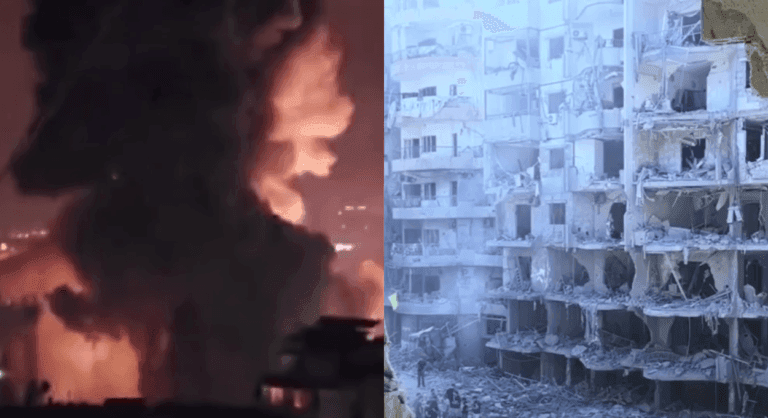“The Middle East faces escalating tensions as Israel confronts Iran-backed Hezbollah in Lebanon and Houthi militants in Yemen. Recent airstrikes, high civilian casualties, and regional missile attacks have raised concerns of a full-scale war, potentially drawing in Iran and impacting global markets.”
The Middle East is currently dealing with mounting conflicts, which have the potential to further destabilize the region, involving various entities and evolving into a larger conflict. Israel has found itself in direct combat not only with Hezbollah in Lebanon, but also with Iran-backed Houthi rebels in Yemen. Recent military confrontations have exacerbated the situation, raising concerns that a full-fledged regional battle could break out.
Increased Clashes in Lebanon

Over the last year, the Israeli military and Hezbollah have launched many cross-border attacks. Tensions have risen sharply in recent weeks, with the deaths of numerous high-ranking Hezbollah commanders and destructive bombings targeting communication systems in Lebanon. Unconfirmed reports even suggested the death of Hezbollah’s leader, Hassan Nasrallah, a big occurrence that, if true, would fundamentally alter Lebanon’s power dynamics and elicit a harsh response from Hezbollah.
The civilian toll has been significant, with more than 600 casualties recorded in Lebanon alone, aggravating the humanitarian situation. Israeli aircraft have continued to target Hezbollah locations in southern Lebanon, while the militant organization has replied by firing rockets into northern Israel, pushing the limits of the so-called “red lines” that both sides have implicitly agreed not to cross.
The Expanding Conflict in Yemen
Credit: BBC News Source: YouTube BBC NEWS
Yemen’s Iran-backed Houthi rebels have joined the fight, launching missile and drone attacks on Israeli territory in support of Palestinians. The Houthis launched a ballistic missile toward Ben Gurion International Airport near Tel Aviv, opening a new front in reaction to the ongoing Gaza battle. Even though the missile was intercepted, the incident signaled a dramatic escalation in hostilities.
In reaction, Israel has launched six airstrikes on Yemen’s coastal city of Hodeidah, targeting Houthi-controlled infrastructure such as power plants and seaports. The strikes have resulted in human casualties and significant power disruptions, prompting doubts about Israel’s military reaction. Israel targeted Yemen for the second time in just over two months, suggesting a willingness to engage numerous adversaries at once.
Potential for an Expanded Conflict
Analysts contend that Israel, Hezbollah, and Iran are not inclined to participate in a full-scale conflict, despite the perilous escalation. All parties are aware of the potential catastrophic effects of such a conflict, not only for themselves but also for the entire region. Hezbollah’s extensive missile armament poses a serious threat to Israeli cities and strategic assets such as offshore gas fields and power plants, while Israel’s military might is well-known and could devastate Lebanese infrastructure as it did in Gaza.
Both parties have maintained a precarious equilibrium, exchanging limited strikes along the border without intentionally broadening the scope of the conflict to include civilian targets. Nevertheless, the potential for error is still substantial. The geopolitical landscape of the Middle East could be substantially altered if the current tit-for-tat escalations were to spill over, potentially involving the United States and Iran in a direct confrontation.
At present, the situation is precarious, and all parties involved are cautiously considering their options. Nevertheless, the most recent round of escalations has brought the Middle East closer to a tipping point. The stability of the Middle East and the welfare of its citizens are at ever-increasing risk, regardless of whether calmer heads will prevail or the region degenerates into a more extensive conflict.